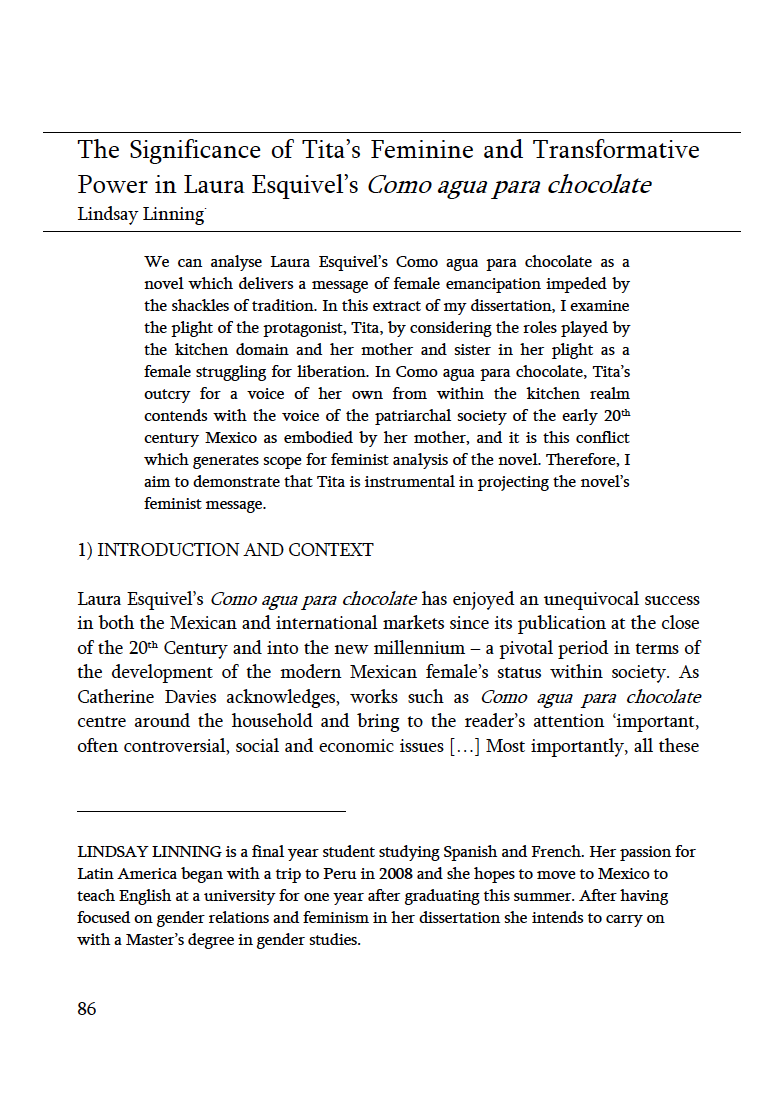The Significance of Tita’s Feminine and Transformative Power in Laura Esquivel’s Como agua para chocolate
DOI:
https://doi.org/10.36399/GroundingsUG.5.241Keywords:
Laura Esquivel, Como agua para chocolate, Female Emancipation, Tradition, Kitchen, Liberation, Tita, Patriarchy, FeminismAbstract
We can analyse Laura Esquivel’s Como agua para chocolate as a novel which delivers a message of female emancipation impeded by the shackles of tradition. In this extract of my dissertation, I examine the plight of the protagonist, Tita, by considering the roles played by the kitchen domain and her mother and sister in her plight as a female struggling for liberation. In Como agua para chocolate, Tita’s outcry for a voice of her own from within the kitchen realm contends with the voice of the patriarchal society of the early 20th century Mexico as embodied by her mother, and it is this conflict which generates scope for feminist analysis of the novel. Therefore, I aim to demonstrate that Tita is instrumental in projecting the novel’s feminist message.

Downloads
Published
Issue
Section
License
Copyright (c) 2012 Lindsay Linning

This work is licensed under a Creative Commons Attribution 4.0 International License.
The CC BY 4.0 license is a Creative Commons license. This is a non-copyleft free license that is good for art and entertainment works, and educational works. It is compatible with all versions of the GNU GPL; however, like all CC licenses, it should not be used on software. People are free to: Share — copy and redistribute the material in any medium or format; Adapt — remix, transform, and build upon the material for any purpose, even commercially. The licensor cannot revoke these freedoms as long as you follow the license terms. But they must conform to the following terms: Attribution — You must give appropriate credit, provide a link to the license, and indicate if changes were made. You may do so in any reasonable manner, but not in any way that suggests the licensor endorses you or your use. No additional restrictions — You may not apply legal terms or technological measures that legally restrict others from doing anything the license permits.
Please check individual article PDF copies to see if any additional restrictions apply.







